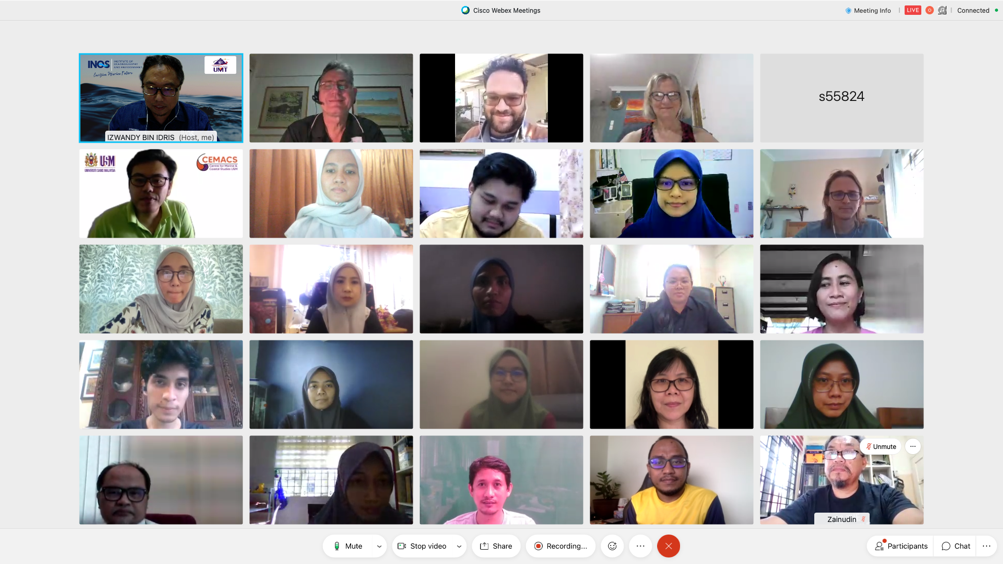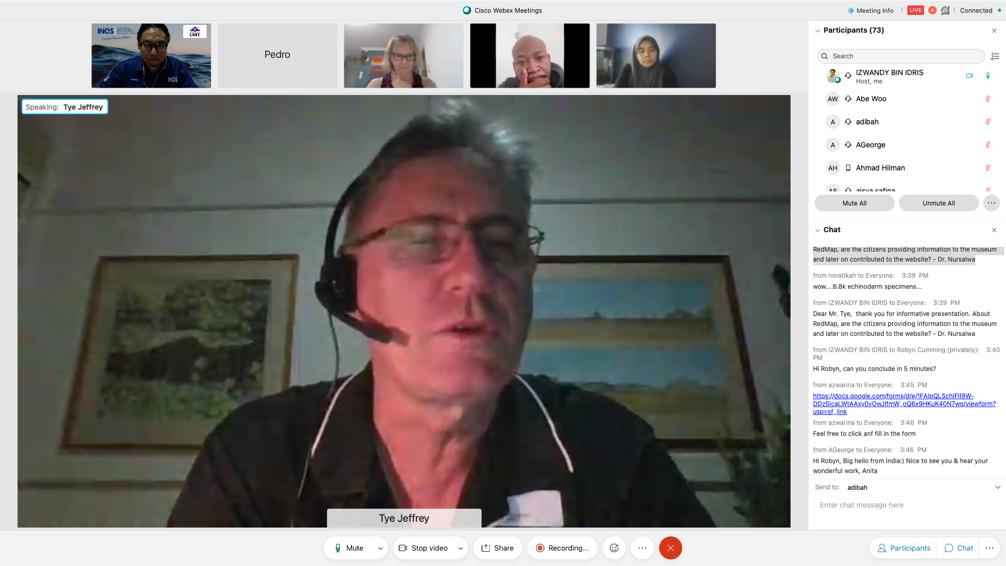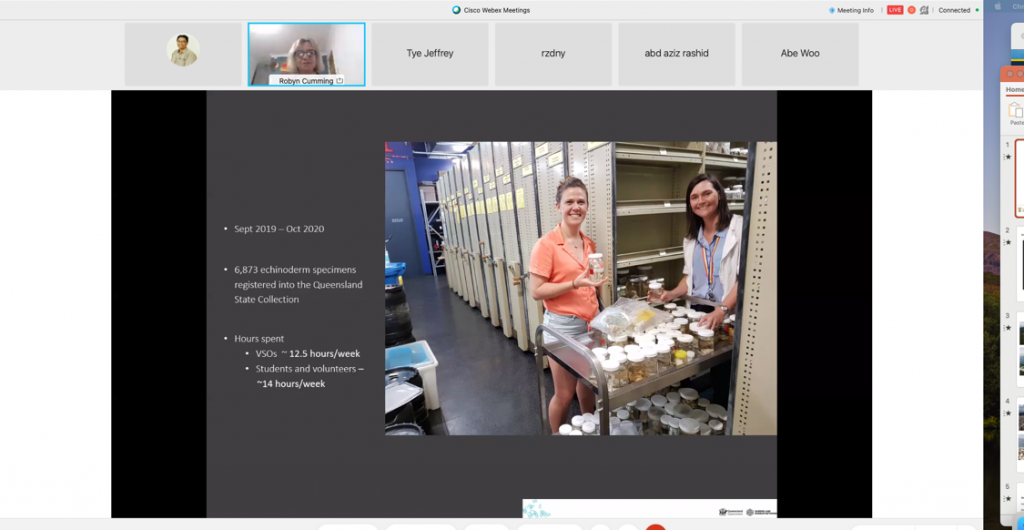
Some of the speakers and participants in the online seminar.
The recent online INOS Seminar Series (27th May 2021) focused on the natural history museum and how it inculcates the spirit of citizen science. In this seminar, three international speakers were invited to share their experience, knowledge and thought on the role of volunteers and their contribution to the advancement of natural history science via volunteerism. The speakers are Dr Robyn Cumming and Mr Tye Andrew Jeffrey from the Museum of Tropical Queensland, Townsville, Australia and Dr Pedro Henrique Negreiros de Braganca from the South African Institute for Aquatic Biodiversity, Makhanda, South Africa. Both Dr Cumming and Mr Andrew highlighted the role of volunteers towards science and research. At the same time, Dr Pedro explained how natural history collections work as windows for understanding the biological impacts of global change.
The volunteering program is one of the best outreach programs for a citizen to become a museum collection assistance. Volunteers provide much-needed skills that help to push the organization’s mission further and foster community identity and ownership. Volunteering program also benefited the museum, science, and research by skilled volunteer and increased skills diversity. Volunteers also benefitted from formal and informal training given by the museum staff and the opportunity to be involved in several scientific fieldworks and community projects. These create a win-win situation for both the institution and citizen.
Meanwhile, Dr Pedro explained the value of museum collections represented by the specimens and associated information housed at the collection. The good specimens can be used for years and define a baseline to guide conservation, restoration, and species-replacement efforts. Specimens in the collection also serve as evidence of biological diversity across time and space. Dr Pedro also shares several challenges faced by natural history museums globally and why these obstacles should not be used to minimize their function, purpose, and existence.
The seminar was attended by more than 80 participants with a mixture of locals and internationals, including Australia, India, Indonesia, the Philippines, and South Africa. Overall, the seminar has successfully achieved its target in both contents and audiences. At the same time, it highlighted the South China Sea Repository and Reference Centre as the leading marine natural history repository in Malaysia.

Mr Tye Andrew Jeffrey sharing his experience on volunteerism programme at the Museum of Tropical Queensland

Dr Robyn Cumming sharing the volunteer involvement in managing the natural history collections at the Musuem of Tropical Queensland

Copyright © INOS | Institute of Oceanography and Environment | Universiti Malaysia Terenganu | 2024. All rights reserved.